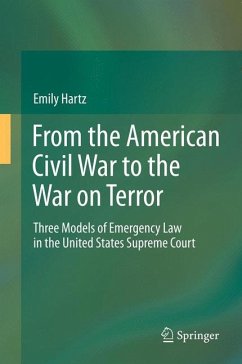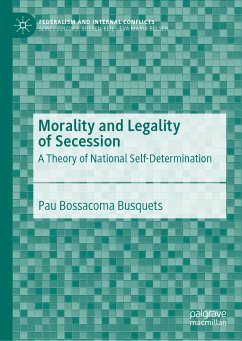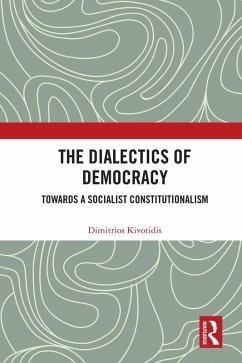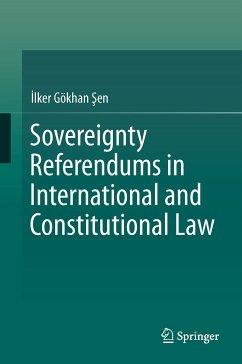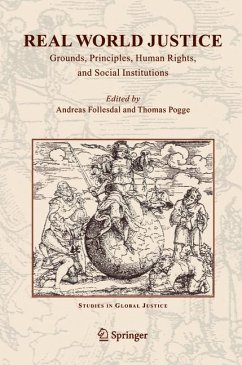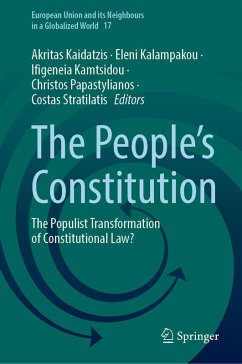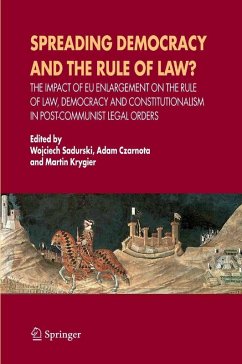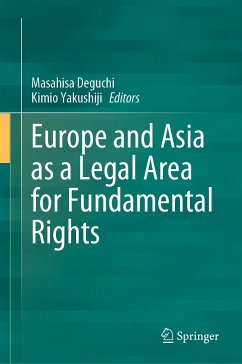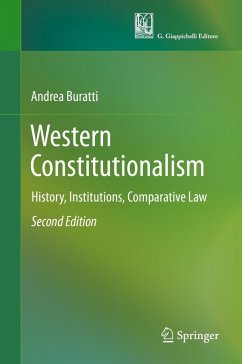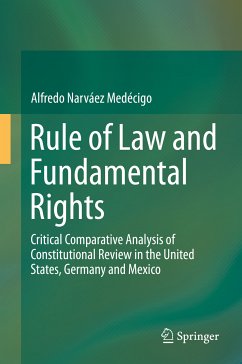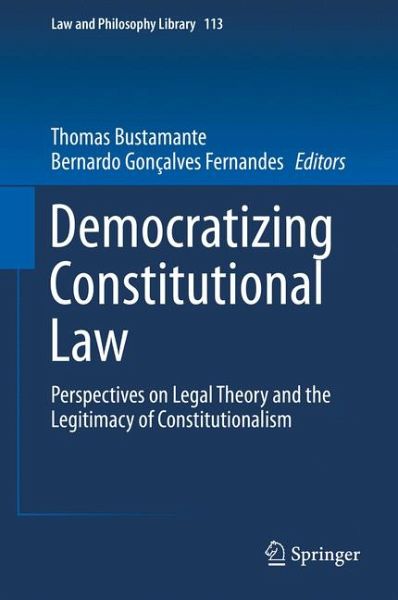
Democratizing Constitutional Law (eBook, PDF)
Perspectives on Legal Theory and the Legitimacy of Constitutionalism
Redaktion: Bustamante, Thomas; Gonçalves Fernandes, Bernardo
Versandkostenfrei!
Sofort per Download lieferbar
104,95 €
inkl. MwSt.
Weitere Ausgaben:

PAYBACK Punkte
52 °P sammeln!
This volume critically discusses the relationship between democracy and constitutionalism. It does so with a view to respond to objections raised by legal and political philosophers who are sceptical of judicial review based on the assumption that judicial review is an undemocratic institution. The book builds on earlier literature on the moral justification of the authority of constitutional courts, and on the current attempts to develop a system on "weak judicial review". Although different in their approach, the chapters all focus on devising institutions, procedures and, in a more abstract...
This volume critically discusses the relationship between democracy and constitutionalism. It does so with a view to respond to objections raised by legal and political philosophers who are sceptical of judicial review based on the assumption that judicial review is an undemocratic institution. The book builds on earlier literature on the moral justification of the authority of constitutional courts, and on the current attempts to develop a system on "weak judicial review". Although different in their approach, the chapters all focus on devising institutions, procedures and, in a more abstract way, normative conceptions to democratize constitutional law. These democratizing strategies may vary from a radical objection to the institution of judicial review, to a more modest proposal to justify the authority of constitutional courts in their "deliberative performance" or to create constitutional juries that may be more aware of a community's constitutional morality than constitutional courts are. The book connects abstract theoretical discussions about the moral justification of constitutionalism with concrete problems, such as the relation between constitutional adjudication and deliberative democracy, the legitimacy of judicial review in international institutions, the need to create new institutions to democratize constitutionalism, the connections between philosophical conceptions and constitutional practices, the judicial review of constitutional amendments, and the criticism on strong judicial review.
Dieser Download kann aus rechtlichen Gründen nur mit Rechnungsadresse in A, B, BG, CY, CZ, D, DK, EW, E, FIN, F, GR, HR, H, IRL, I, LT, L, LR, M, NL, PL, P, R, S, SLO, SK ausgeliefert werden.



